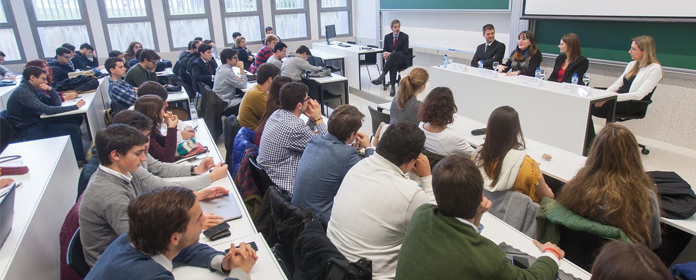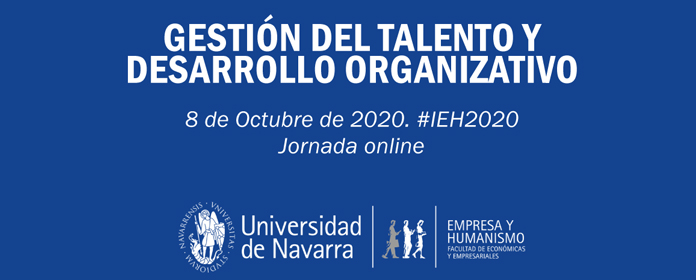Civil Service Examinations: “A Matter of Determination and Effort, Not About Being Superman”
School of Economics and Business Administration hosts “Economics and Institutions” Alumni Experience

The School of Economics and Business Administration hosted the latest Alumni Experience roundtable discussion, which addressed the topic “Economics and Institutions.” The event was attended by former students, including Judith Arnal (Economics + Law ‘09), the president of the TFCA (Task Force Coordination Action) of the EU’s Eurogroup Working Group and an adviser to the General Secretariat of the Treasury and Financial Policy of the Ministry of Economy, Industry and Competitiveness; Cristina Berechet (Master’s in Economics + Finance ‘04), director of the Taxpayers Union think tank; Julio Cifrián (Economics + Law ‘07), head of income tax and assets at the Treasury of Navarre; and Cristina Sádaba (Economics ‘06), an adviser to the Spanish prime minister’s office.
After briefly describing their time at the University and explaining what their respective jobs entail, the guests answered some questions from the students. Judith Arnal warned that “the public sector working day is not always eight until three; it can be hard and sometimes you have to work long hours.” The expert also offered some tips on how to pass each of the steps in a selection process.
Cristina Berechet then advised them to “look for areas in which you think you need training, because these could help you in the future.” She said that, for her, computer programming was an added bonus, as was the ability to communicate and carry out campaigns on social networks.
Julio Cifrián made it clear that there’s room for everyone in the public administration: “To work for the Treasury, you don’t need to have a passion for taxes or dream about them.” Based on his experience, he encouraged the students to think about the civil service examinations. “It’s a matter of determination and effort; it’s not about being superman,” he said.
On the other hand, Cristina Sádaba described what is involved in a designated post such as hers: “Trust is crucial and the level of demand is very high, since the beneficiary of your job is the prime minister.” She stressed that, in order to achieve your goals, you need to be highly qualified, think outside the box and take a genuine interest in the issues that concern you.
Finally, all of the speakers agreed on the four building blocks that students need for a future career: a command of English, Excel skills, computer programming skills and knowledge of econometrics.




